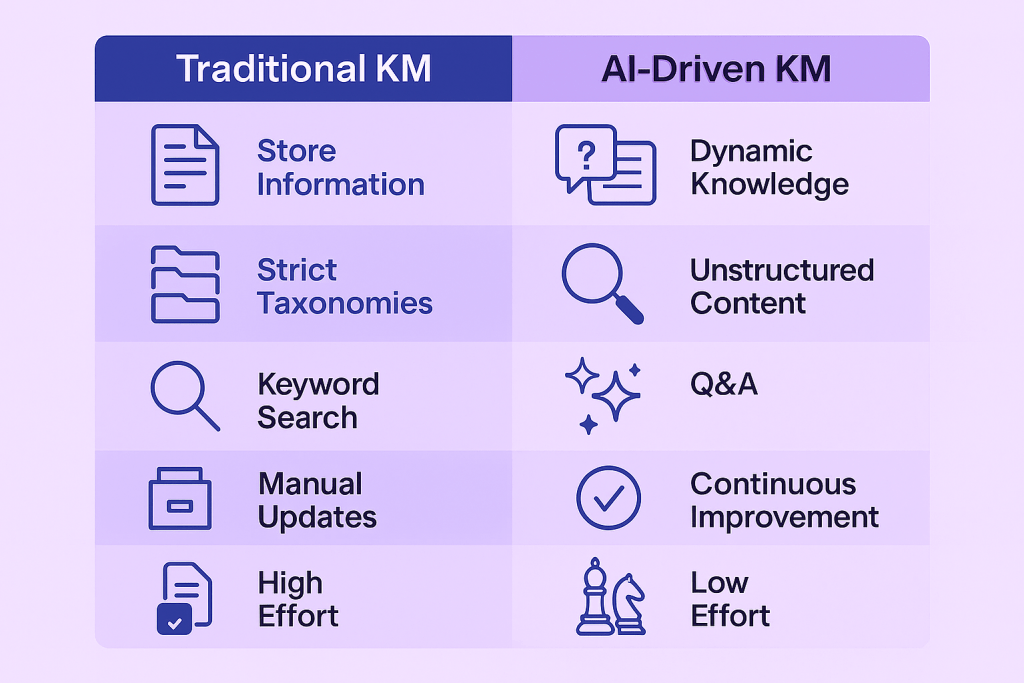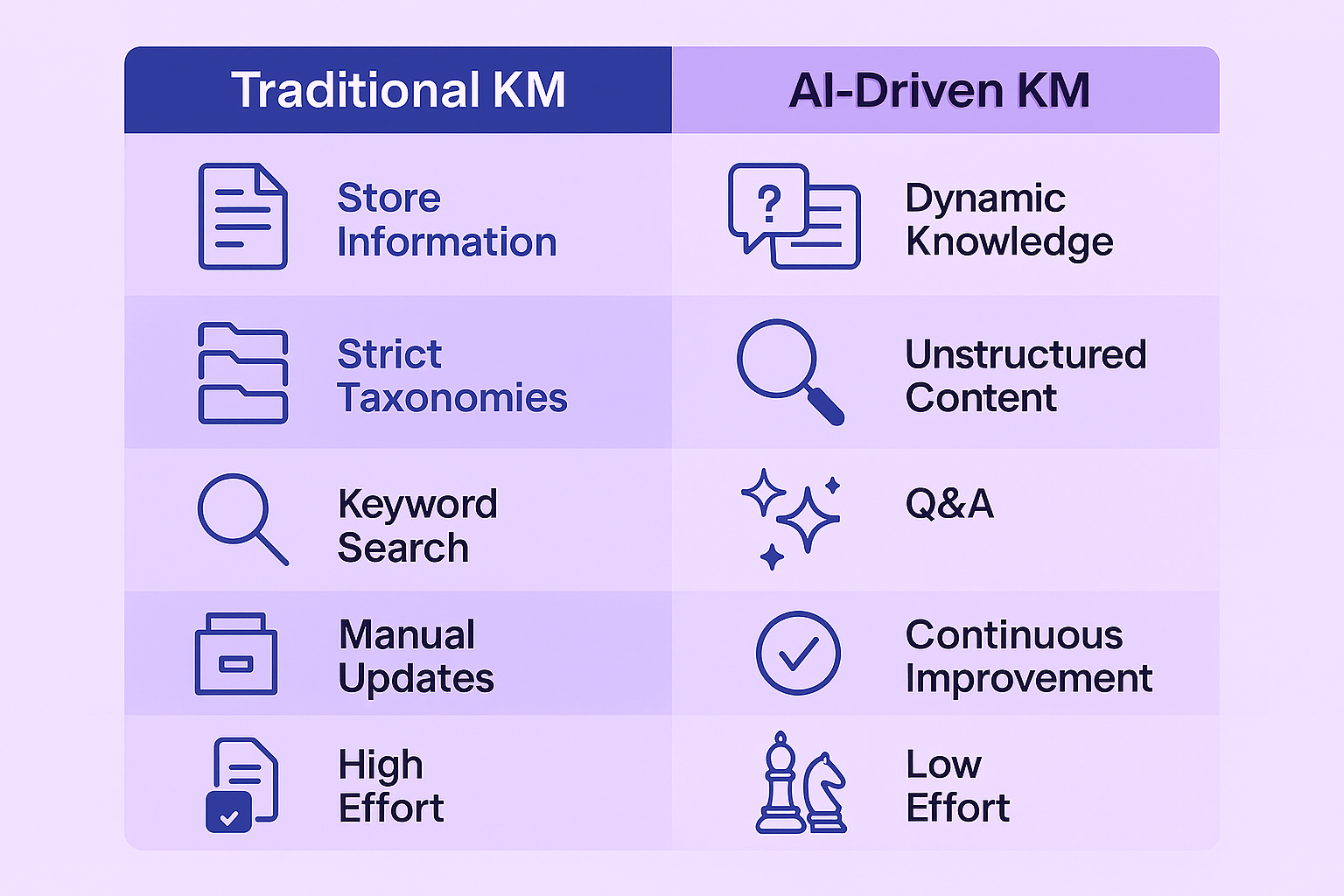In the era of AI, what does knowledge management (KM)truly mean? Is it about storing information, or making knowledge dynamic, discoverable, and actionable in real time?
For decades, knowledge management (KM) has focused on capturing and organizing information—wikis, document libraries, and structured taxonomies. But today’s organizations need more than static repositories. They need systems that surface answers instantly, connect insights across silos, and turn content into action.

Each organization’s KM strategy depends on its unique mix of content types, governance needs, and user expectations. Some rely on structured formats and rigid taxonomies; others have sprawling repositories of Office files, PDFs, and web pages.
On September 18th, Microsoft released its knowledge agent (preview). This agent allows you to do many things in the scope of enterprise knowledge management, such as:
- Ask questions about your content
- Summarize files
- Compare content
- Generate FAQ from files
- Create audio overviews (Word & PDF)
- Review and fix a SharePoint site
- Create SharePoint pages, sections, and content
- Refine SharePoint pages
The agent currently supports:
- Microsoft Office files (doc, docx, ppt, pptx, and xlsx),
- Modern Microsoft 365: FLUID, LOOP
- Universal: PDF, TXT, RTF
- Web files: ASPX, HTM, HTML
- OpenDocument: ODT, ODP
This is especially powerful for organizations that don’t have structured file types like Markdown or JSON but still want AI-driven KM. Instead of forcing a migration to rigid formats, Knowledge Agent works with what you already have.
Traditional KM tools often require heavy upfront structuring—taxonomies, metadata, and governance models. But in reality, most enterprises have unstructured or semi-structured content scattered across SharePoint, Teams, and legacy systems. Knowledge Agent bridges that gap by:
- Reducing friction: No need to reformat everything into specialized schemas.
- Enhancing discoverability: Natural language Q&A over your existing content.
- Accelerating content improvement: Automated site reviews and page refinements.
In short, it’s a practical way to unlock the value of your existing knowledge assets while layering in AI capabilities.
What do you think of the AI era of enterprise knowledge management? What solution will you choose?

Leave a Reply
You must be logged in to post a comment.